Here are some interviews and photos with Cate Blanchett during Venice Film Festival and San Sebastián International Film Festival.
Check out the first TV spots and exclusive clip for Alfonso Cuarón’s DISCLAIMER* below. The series will debut the first two episodes globally on Apple TV+ on 11 October.
EDIT: London Film Festival will have two separate screenings of Chapters 4-7 of the series as part of their LFF For Free programme on 11 October. It was already announced that Chapters 1-3 will screen on 10 October which will be followed by a Q&A with Alfonso Cuarón and cast members. More info on the screenings here: CHAPTERS 1-3 || CHAPTERS 4-7
Google translated from Italian and Spanish to English.
Cate Blanchett: “We Actors Are Not Puppets to Tell Where to Stand and What to Do”
The Australian-born actor is sincerely interested in immediately knowing my opinion on Disclaimer . So, after a joke about my outfit matching hers – “we are matchy, matchy , but I am not wearing anything underneath”, and she opens the jacket of her suit in the same blue denim as my shirt –, she wants to know what I think of the series. My answer: I am not among those who include it in the same category as The Undoing and Big Little Lies , because it is much more, it is a film in seven episodes , which forces those who watch it to deal with the concepts of self-representation, truth and other people’s judgments.
What did you think after reading and “launching” the script?
“I have to talk to Alfonso. I mean, when someone like him calls you, you say yes regardless of the story, because you’re in his hands. The questions, so many, came once I had delved into the project. I was uncomfortable, shocked by the layers of preconceptions under which I myself was burying my character.”Who is Catherine?
“Believe me, I’ve never played anyone I wanted to describe so little: she’s elusive, enigmatic, full of secrets; she’s a woman with a trauma that inhabits her body. I couldn’t believe I could go hunting for her dark side.”Doe you have a dark side too?
“We all have something we don’t want to share. Not because it’s serious: simply because we prefer to keep it to ourselves or because we haven’t processed it yet. It’s called privacy.”Privacy that social media puts to the test. Is that the reason why you continues to stay away? You’re not on Instagram or X.
“I don’t despise social media. I think they are useful until they become forums full of gossip. Gossiping is fun, but doing it in a wild way is harmful and demeaning, for all parties involved.”You are one of the executive producers of Disclaimer: was it a natural transition?
“I don’t know how to judge myself as an actor, but I know that as a person I am an excellent collaborator. In this sense it was a natural transition. I think there is a misunderstanding: actors are not puppets who are told where to be and what to do, we are professionals full of ideas, not only about the characters, but about the work as a whole. So many of us move to other positions, to facilitate the work of colleagues, because we understand the pitfalls and opportunities of a script.”Is it easier or more difficult to find projects to produce today?
“In the past, when you had a great script, a great director, a great cast, you knew that story would find its audience. Maybe a small one, but it would reach it. Not anymore. It’s essential to know how that story will be marketed, distributed, advertised, because these are all factors that influence the audience’s experience.”Have streaming platforms changed the way we choose a story?
“Sure: if a story is interesting, it has the potential to emerge but slowly, it can fall into oblivion before it can be noticed.”It seems like a different industry than when you first started out. What do you remember about that time?
“Oh my God! When I came out of drama school, no one knew what to do with me. I didn’t have the model look, I wasn’t even special. I started auditioning and I didn’t get it. I ended up having a casting director in Australia call me to read to the other actors while they were auditioning. It was so helpful: I learned so much about the process of forming judgments as soon as we walk into a room.”The first time in Venice, do you remember?
“I was presenting a film about Queen Elizabeth I ( Elizabeth, 1998). At the same time I was filming Heaven in Montepulciano, so I had to shave my head, but I didn’t want to show myself like that and so I decided to wear a wig: I was really uncomfortable, I didn’t recognize myself. And then, I didn’t know anything about red carpets, I didn’t know where I had to go: the Lido was a labyrinth.”Is it right to bring important messages of social and political commitment to the red carpet?
“Yes, but it depends on how and when. Thinking of a glamorous context as a political platform can be a bit misleading.”Six years ago, on the red carpet at Cannes, you led a march of women to protest against the disparity in pay in your industry.
“I was president of the jury and, to be honest, it was some members of the French film industry who asked me to do it. Each country has its own critical issues, but everywhere there is not – yet – equal pay. Unfortunately, the lesson of my mother’s generation was: we have won certain battles and we can stop worrying about being women. That is not the case. The issue has become politicized and must remain on the agenda. At the moment, in the world, there is almost a kind of aspirational misogyny, where everyone is encouraged to indulge in certain hierarchical patterns supported by a patriarchal structure. We must remain active and supportive in the efforts, in the challenges. And you know, in some ways, it is irritating that we women are asked to comment on this situation. It is like asking a person of color: “What do you think about racism?” It’s not their problem, it’s the problem of the average white person, who has to act. Then, of course, it’s important to continue talking about it.”You have four children: what worries you the most?
“I’ve noticed that for their generation it is very difficult both to make long-term plans and to set off on an adventure without a precise destination. By insisting on the dangers, this is the result. I try to encourage my children to look ahead, to instill in them a sense of adventure.”The last adventurous experience you had?
“Swimming in freezing water. I don’t like the cold, but I started doing it and it changed my life.”Does being an ambassador for Giorgio Armani’s Sì perfume make you more likely to say yes?
“A ‘yes’ often leads to a surprise, a trip, a meeting. Like the one with Giorgio Armani, which is one of the most important relationships, a Maestro, a creative with a backbone.”Will beauty save this world?
“Perhaps Dostoevsky was referring to a woman? There is a lot of ugliness around at the moment. Better to focus on nature, on the divine that is within us: not in a religious sense, I subscribe to the Eastern vision according to which beauty comes from within”.
Harper’s Bazaar meets exclusively in San Sebastian with Cate Blanchett to talk about cinema, current events, her family and her time in our country.
Cate Blanchett the most sought-after woman in the film industry right now, is waiting for us in a hotel suite in San Sebastian . “Would you like something for breakfast?” she asks with a radiant smile and a plate of mini croissants in her hand. It’s 12 noon, but the imposing Australian exudes elegance in black trousers, a white blouse and court shoes. She is exultant, and with good reason. Last night she received the prestigious Donostia Award at the 72nd edition of the San Sebastian Film Festival . An award that adds to the more than 200 recognitions she has accumulated, including two Oscars, four BAFTAs, four Golden Globes, the honorary César and the International Goya. The 55-year-old actress and producer perfectly embodies what it means to be a star today. She has an extraordinary career, has become one of the most committed voices in the sector, possesses a unique charisma and is surrounded by a subtle halo of mystery. Pure talent and kindness at short distances, as his friend George Clooney pointed out yesterday in an emotional congratulatory video that was broadcast during the gala.
–Congratulations, Cate! What does this recognition mean to you?
It’s amazing. These things are always unexpected. You never know how to receive it really. Particularly when the other actor who was awarded this year is Javier [Bardem], who I admire deeply. And it’s always a special pleasure when you’re not from that culture. In some ways, your work has crossed what could be a cultural barrier, you know, because the language is different, and you realize that some of your work may have had universal themes. That’s very meaningful to me.–This is your first time in San Sebastian. What is your impression of the city?
I think it’s a spectacular city and very rich culturally. But not just San Sebastian, the whole region itself. I would like to go back and explore it at a leisurely pace, to soak up this deep and ancient culture.–In just one month, the miniseries Disclaimer (Apple TV+) is coming out. What attracted you to the character and to being able to work with film director Alfonso Cuarón?
The character was secondary. I was interested in filming with Alfonso and collaborating with him on this project: the first time he has made a seven-part film. It is a kind of experiment to see if cinema can exist on the small screen. Finding out how to do it and being part of this process was the real attraction for me. Also, he has two of the best directors of photography in the world, Bruno Delbonnel and Emmanuel Lubezki. As an actor, my relationship with the directors of photography is very important and deep, so working with them was fantastic.–Yesterday you presented Rumours directed by Guy Maddin, Evan Johnson and Galen Johnson. Maddin’s experimental and surrealist films, often compared to David Lynch, are something different from what we are used to?
There can be no more different filmmaker to Alfonso Cuarón than Guy Maddin. He is always taking apart films and putting them back together, like a collage or a pastiche, and there is always an ironic and witty twist or a twist. Their work is both moving and satirical, and very interesting formally. Ever since I saw the experimental film The Green Fog (2017), also directed by the three of them, I have wanted to work with these guys. The shoot, entirely at night in Budapest and with a wonderful cast, was crazy. Like a big slumber party.–You are known worldwide for films such as Blue Jasmine , The Curious Case of Benjamin Button and the Lord of the Rings trilogy . Personally, which character has been the hardest for you to let go of and why?
Blanche DuBois in the Broadway play A Streetcar Named Desire . Although it’s not necessarily the character, but the group of people you work with. Yet, in some ways, you don’t say goodbye. You say goodbye to that experience, but like in physics there remains a kind of sound wave that never really ends. Somewhere, there’s a residue left and that’s the joy of what I do: those challenging roles that expand you, and so they don’t leave you and you don’t have to say goodbye. It’s the disappointing ones, oddly enough, that linger the longest in an unhealthy way. They’re the ones you have to let go of and say to yourself, ‘Don’t make that same mistake again, or try not to. ’–What does it mean to be brave today?
You have to be, if not for yourself, then for your family and the people around you. In my travels with UNHCR, with the humanitarian workers and displaced people I have met on the ground, listening to their experiences, I feel weak and fearful compared to the strength and resilience these people have shown. I have learned a lot from spending time with human beings who have so little and are so deeply generous.–In terms of empowerment and equality, what have we achieved and what remains to be done?
Equal pay for equal work is still not happening. There are so many achievements that we have made as a species, but also from a gender perspective, that we have thought that it was already solved. But the status quo and the incredible strength or immobility of the patriarchal structures under which we all work are so intractable that those achievements are quickly snatched away. So, unfortunately, we have to keep them on the agenda.-Totally agree.
Yes, and we are probably here to talk about other things, but as a species we face multiple challenges. It is ridiculous to hear the talk that every year the G7 meets and talks about massive problems that we collectively have to solve, but yet we are so busy dividing countries and putting up borders and dividing ourselves that we fail to find solutions. I am not saying it is easy, but there is a lot to do.–What do you consider your greatest achievement?
Having raised a family based on honesty. We laugh like crazy together; my husband and kids are so much fun, I crack up with them. Also, the fact that we eat together is something very important to me. Getting together to enjoy a family meal is a great achievement, and it fills me with pride that everyone wants to come home and participate in the cooking.–What is the quality that you value most in others?
Knowing how to listen. I think my sons and my daughter are very good listeners and that is important. I don’t know if I can do it, but I try.–Is there anything you wish you had known when you were starting your career that you now understand?
I don’t think I know a lot about a lot of things. In fact, the more I do, the less I know. I’m amazed at how the industry has changed since I started. I never would have thought I’d still be making films. When I started, the careers for actresses were very short. I’m excited for the new generations coming up behind me, because there are so many more opportunities now that they’re creating together, not just for themselves, but for each other. That spirit of collaboration is really wonderful. It’s an exciting change.–What makes you happy lately?
My garden and swimming. I love swimming in the sea.
What’s in the book?
DISCLAIMER* — Chapters I and II premiere October 11. pic.twitter.com/EOc9n3w9Mi
— Apple TV (@AppleTV) October 4, 2024
*Premieres in 10 days.#DISCLAIMER* — Streaming October 11 on Apple TV+ pic.twitter.com/nb8IU6EttB
— Apple TV (@AppleTV) October 2, 2024
*The past finds her in 8 days.
DISCLAIMER* premieres October 11 on Apple TV+ pic.twitter.com/kc2SLwoVYl
— Apple TV (@AppleTV) October 3, 2024








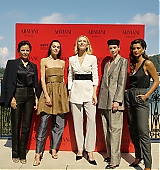
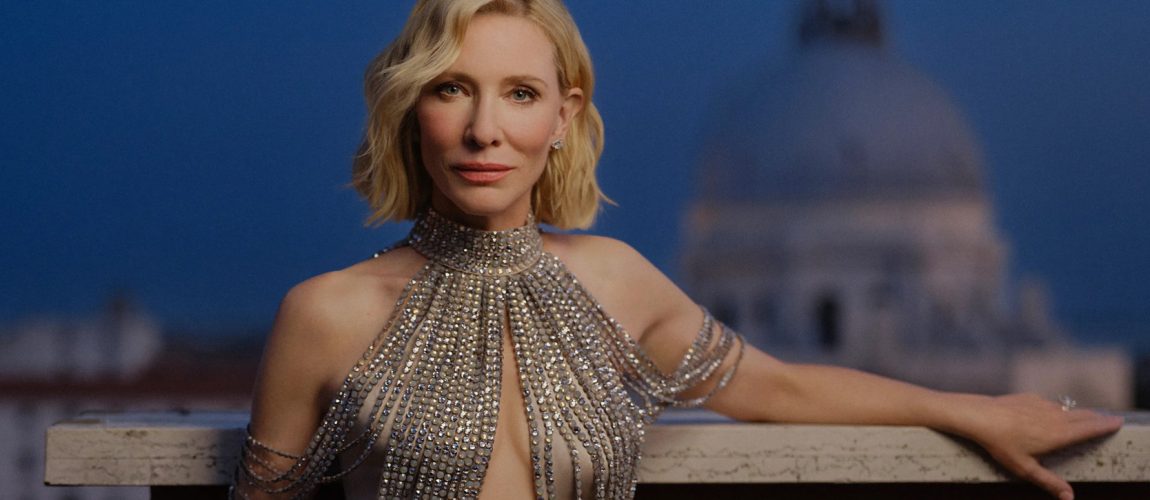
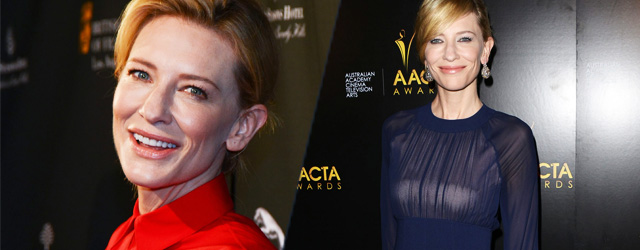
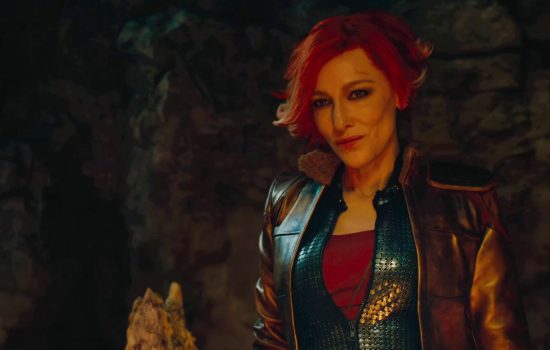
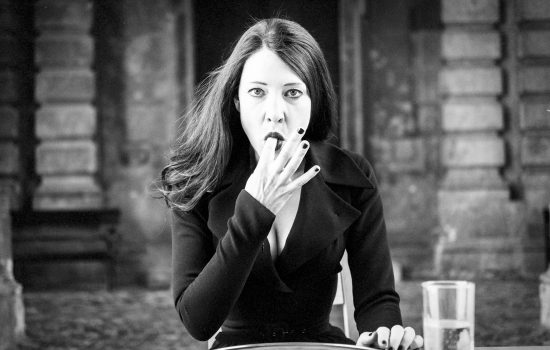

 A Manual for Cleaning Women (202?)
A Manual for Cleaning Women (202?) Father Mother Brother Sister (2025)
Father Mother Brother Sister (2025)  Black Bag (2025)
Black Bag (2025)  The Seagull (2025)
The Seagull (2025) Bozo Over Roses (2025)
Bozo Over Roses (2025) Disclaimer (2024)
Disclaimer (2024)  Rumours (2024)
Rumours (2024)  Borderlands (2024)
Borderlands (2024)  The New Boy (2023)
The New Boy (2023) 











